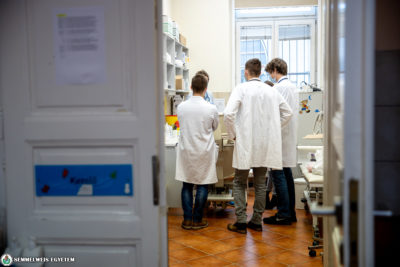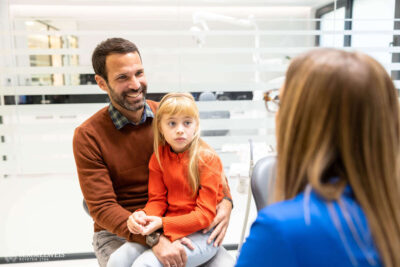A 6-year-old boy has been released from Semmelweis University’s 2nd Department of Pediatrics after recovering from Pediatric Inflammatory Multisystem Syndrome (PIMS). He was the first patient in Hungary to receive targeted therapy for this rare and serious complication of COVID-19 infection.
 The affected child was first admitted to a hospital in Budapest two weeks ago, where he received the recommended steroid- and immunoglobulin therapy. However, after temporary improvement, he had a fever again, his laboratory values deteriorated, so he was taken to the Pediatric Rheumatology Center of Semmelweis University.
The affected child was first admitted to a hospital in Budapest two weeks ago, where he received the recommended steroid- and immunoglobulin therapy. However, after temporary improvement, he had a fever again, his laboratory values deteriorated, so he was taken to the Pediatric Rheumatology Center of Semmelweis University.
“The vast majority of children with PIMS respond immediately to the primary, so-called standard treatment procedures, and their complaints disappear quickly, within a few days. However, there are therapy-resistant or severe cases with stormy symptoms when other treatments are also needed. In this case, biological therapy can bring healing.”, highlighted Dr. Tamás Constantin, Associate Professor at the 2nd Department of Pediatrics of Semmelweis University.
 Biological therapies, which are also increasingly used in pediatric rheumatology, are named after the biological technology used during their production. Their mechanism of action targets regulatory proteins involved in the development of the disease.
Biological therapies, which are also increasingly used in pediatric rheumatology, are named after the biological technology used during their production. Their mechanism of action targets regulatory proteins involved in the development of the disease.
“If we think of steroid as a shotgun attacking the disease, then these modern drugs are telescopic rifles”, Dr. Tamás Constantin explained by way of illustration.
Regarding applied biological therapy, the specialist said that an active ingredient called anakinra was originally developed to treat adult rheumatoid arthritis, but it did not produce breakthrough results, therefore it was not included in the daily clinical practice of rheumatologists. However, pediatric rheumatologists use it frequently because it is highly effective in certain diseases associated with extreme inflammatory conditions, including PIMS.
Although the little boy was admitted to the clinic in a bad health condition with persistent fever, the biological therapy started in time prevented not only organ damage, but also the child’s returning to the intensive care. After a few days of treatment, his laboratory values also returned to normal, and he was able to leave the department of Semmelweis University without any symptoms or complaints.
Orsolya Dávid
Featured image (illustration): Attila Kovács – Semmelweis University
Translation: Katalin Illés-Romhányi


